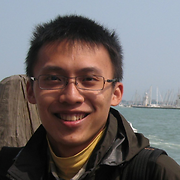[Seminar] "Correlated constrained quantum many-body systems" by Dr. Yi-Ping Huang

Date
Location
Description
Affiliation
Max Planck Institute for the Physics of Complex Systems
Education
2004- 2008: B. S. National Tsing-Hua University
2010- 2012: M.S. University of Colorado at Boulder
2012- 2017: Ph. D. University of Colorado at Boulder
2017- now: Postdoc at the Max Planck Institute for the Physics of Complex Systems
Abstract
Quantum many-body systems with local constraints are fruitful systems to study novel phases of matter. In equilibrium, the local constraints are one of the key ingredients to having ground states with non-trivial entanglement patterns. On the other hand, in the quench dynamics, kinetic constraints limit possible many-body dynamics and explore the Hilbert space in a nontrivial way. I will discuss constrained systems from two different perspectives. First, I will discuss strong spin-orbit coupled frustrated magnets where spin-orbit coupling plays a crucial role to achieve long-range entanglement pattern and induce a non-trivial response. We propose the idea of dipolar-octupolar doublets that describes a family of pyrochlore materials. For such doublets, two components of the pseudospin transform like a magnetic dipole, while the other transforms like a component of the magnetic octupole tensor. We found such novel degrees of freedom can host quantum spin ices and topological insulators at different limits. Second, I will discuss the quench dynamics of a family of lattice gauge theory, quantum link models (QLMs). QLMs realize exact gauge invariance with finite-dimensional Hilbert spaces. Therefore, they have the potential to be implemented in atomic simulators. From the return probabilities, we found dynamical quantum phase transition and identify its relation with equilibrium order parameters. To conclude, I will discuss recent experimental progress on related subjects.
Subscribe to the OIST Calendar: Right-click to download, then open in your calendar application.



